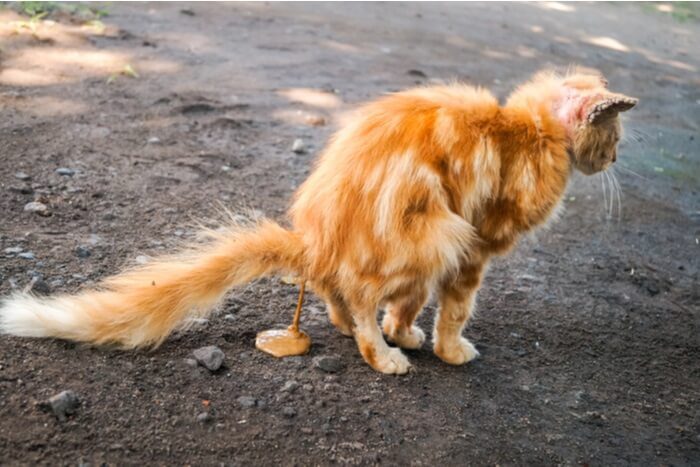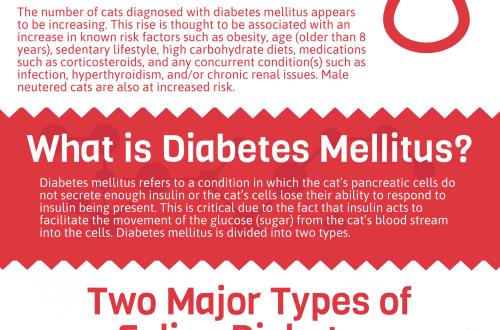
Giardia in cats: symptoms and treatment
According to Rospotrebnadzor, more than 70 cases of giardiasis are registered annually in the Russian Federation, which is one of the most common parasitic diseases of the gastrointestinal tract among the population. Unfortunately, furry pets also have Giardia. Is it possible to get Giardia from cats?
Giardia is sometimes confused with intestinal worms, but is actually a type of protozoan parasite that enters the gastrointestinal tract. Although this parasite can cause severe diarrhea, treatment for giardiasis in cats is usually very effective and has a good prognosis.
Contents
Where do Giardia come from in cats?
The mechanisms by which Giardia causes disease in cats are not well understood. Much of the information that veterinarians rely on is based on research on giardia in humans. It is believed that cats become infected with Giardia by ingesting an immature organism. Once in the intestines of a cat, this organism turns into a cyst. As a result, the cat excretes even more infected cysts with the stool. If other cats come into contact with the stool of an infected cat, respectively with giardia in the feces of a cat, they can also become infected. A cat can also ingest Giardia from contaminated drinking water, puddles or ponds.
Giardiasis in cats: symptoms
Many cats infected with giardiasis are asymptomatic. Pets do not show any signs of illness. And kittens, older cats, and cats that are stressed, have weakened immune systems, or live in crowded areas are more likely to show signs of clinical illness. These include severe watery diarrhea and weight loss. If left untreated, giardiasis can be fatal.
Diagnosis of giardiasis in cats
The test for giardiasis in cats is a microscopic examination of feces for the presence of eggs and parasites. Sometimes the parasites can be seen in a direct stool smear. If giardiasis is suspected, the veterinarian will test the cat’s blood or feces for the presence of specific giardia antigens. These tests are more accurate than a stool test but take longer – the sample usually needs to be sent to an external laboratory.
Giardiasis in cats: treatment regimen
No drug has been formally approved in the US for the treatment of giardiasis in cats. However, the standard treatment is metronidazole, an antibiotic that a cat usually has to take for five to seven days. Your veterinarian may suggest another similar medication, such as albendazole or fenbendazole.

How to get rid of Giardia
If a cat is diagnosed with giardiasis, it is necessary to disinfect the house to prevent re-infection of the animal or yourself. A diluted 1:16 chlorine bleach solution can be used for cleaning. In addition, you can treat the cat’s bed with steam or dry-clean with a disinfectant containing quaternary ammonium. Giardia cysts die easily when dry, so it’s best to keep the area as dry as possible for a few days.
Giardia can also be found in the fur of a cat. The best way to remove organisms from a pet’s coat is by bathing with pet shampoo and rinsing thoroughly. The cat should then be bathed again with a quaternary ammonium disinfectant. The product can remain on the coat for no more than three to five minutes, as prolonged contact with this chemical can cause irritation of the skin and mucous membranes of the cat.
After bathing, rinse thoroughly, paying close attention to the area around the anus. Since in most cases bathing a cat is not an easy task, you can entrust it to a veterinarian. If the animal is too nervous, the specialist may prescribe a mild sedation.
Vaccination and prevention
To date, no drug has proven itself as a reliable means of preventing giardiasis in cats. Despite the existence of a known vaccine against Giardia, there is not enough evidence of its effectiveness. In one study, young kittens who received the vaccine were immune to infection after 6 to 12 months, but the vaccine caused local reactions. Other studies indicate that the vaccine may not be effective in previously infected cats and may not help prevent re-infection.
The best prevention for giardiasis is environmental control, which includes disinfecting potentially infected areas in the home and removing parasite organisms from the animal’s coat. Any changes in the cat’s behavior and well-being should be contacted by a veterinarian for their expert opinion.
See also:
Helminthiasis in cats: symptoms and treatment
Everything you need to know about cat fleas
Fleas and worms





